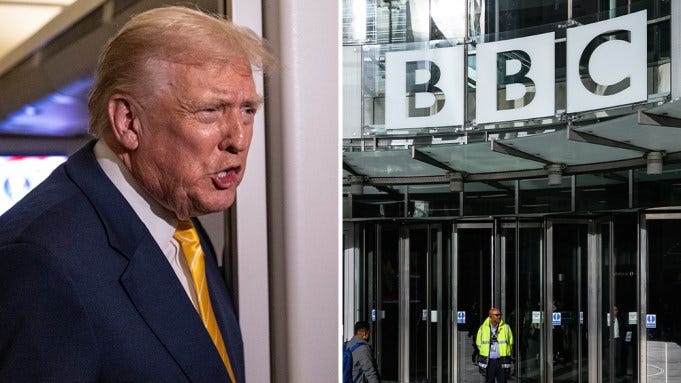The BBC, Truth, and the Rise of a Post-Truth Culture
Why the BBC’s manipulation of Trump’s words reveals a media culture losing its grip on truth
Two separate flagship BBC programmes, Panorama and Newsnight, have now been shown to have manipulated clips of President Trump’s speeches in ways that materially altered their meaning and heightened the suggestion that he was encouraging violence. These were not small editorial oversights. They were serious distortions, aired on the Corporation’s most important factual platforms, and only acknowledged after outside scrutiny forced the issue. For an organisation that has been loudly advertising its impartiality, particularly through its “Trust Is Earned” campaign, the implications are grave. They raise questions about institutional culture, editorial judgement, journalistic recruitment, and ultimately the state of truth in our society.
What happened in both broadcasts followed a similar pattern. In the Panorama case, a segment restructured a Trump speech so that a line condemning political violence was removed. What viewers were left with conveyed the opposite of what he actually said. In the Newsnight example, another manipulated edit conveyed a more inflammatory tone than the original remarks allowed. The explanations offered afterward were defensive and curiously uninterested in how such manipulations had occurred more than once, on separate teams, on two of the BBC’s most prestigious programmes.
When errors point in the same ideological direction, they become indicators of something deeper. A one-off mistake might be carelessness or a lapse in judgement. Two similar distortions at senior levels suggest a shared mentality. This is where institutional culture matters. The BBC, like most major media outlets, recruits disproportionately from the same educational and cultural pipeline. Journalists often emerge from the same universities, share the same assumptions, and move in the same metropolitan circles. The uniformity of worldview can become so taken for granted that certain editorial decisions do not even register as distortions. If the prevailing assumption is that Trump is dangerous and prone to inciting aggression, then an edit that reinforces this seems to fit the “truth” everyone already accepts. The problem is that such edits alter reality, even when the journalists believe their intentions are sound.
This instinct to defend a “higher truth” or a morally resonant narrative is a hallmark of a wider cultural shift.




